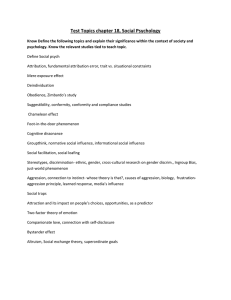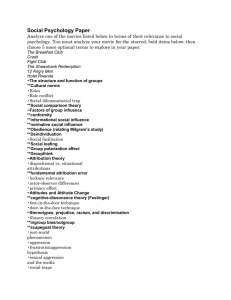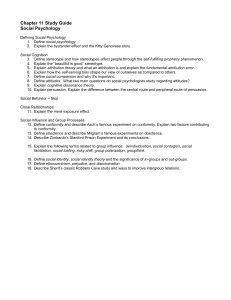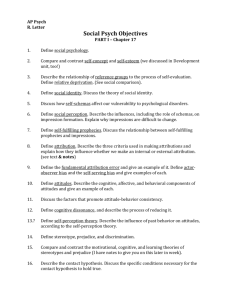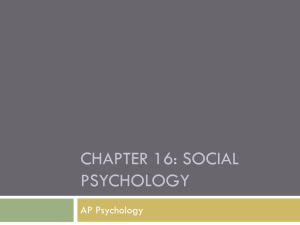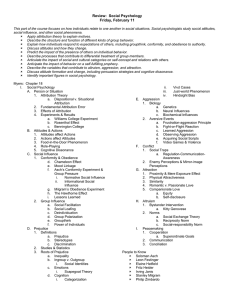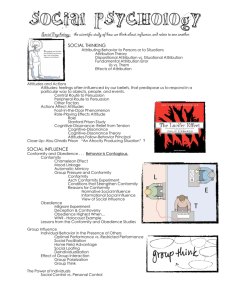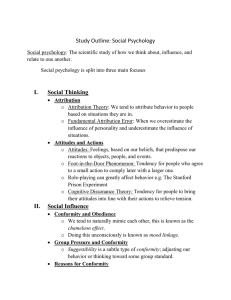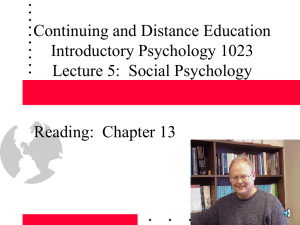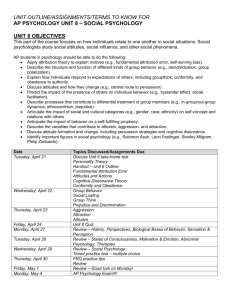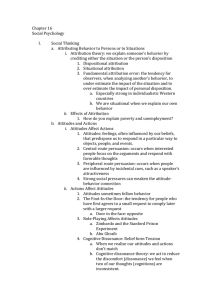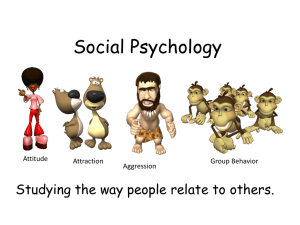AP Psychology Unit XI Study Guide Social Psychology Directions
advertisement
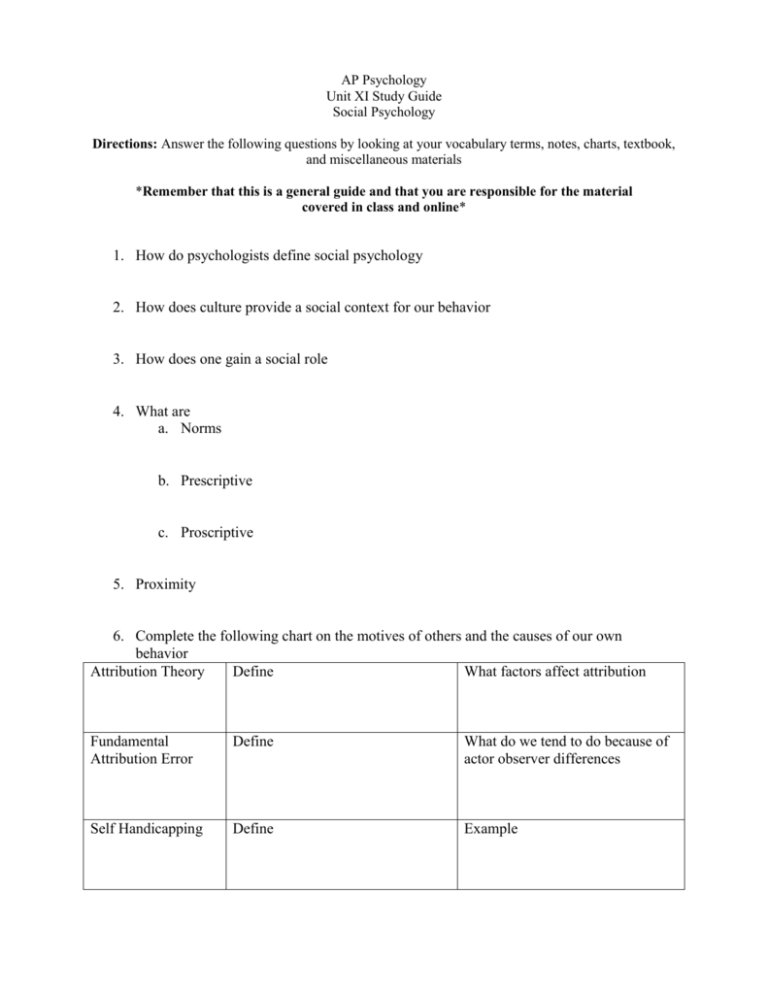
AP Psychology Unit XI Study Guide Social Psychology Directions: Answer the following questions by looking at your vocabulary terms, notes, charts, textbook, and miscellaneous materials *Remember that this is a general guide and that you are responsible for the material covered in class and online* 1. How do psychologists define social psychology 2. How does culture provide a social context for our behavior 3. How does one gain a social role 4. What are a. Norms b. Prescriptive c. Proscriptive 5. Proximity 6. Complete the following chart on the motives of others and the causes of our own behavior Attribution Theory Define What factors affect attribution Fundamental Attribution Error Define What do we tend to do because of actor observer differences Self Handicapping Define Example 7. What is self comparison theory 8. Complete the chart on the factor that influence interpersonal attraction Interpersonal Define What is the main characteristic of Attraction mate selection Self Disclosure Define Social Exchange Theory Define Why do we maintain relationships Love Adult love relationships tends to mirror attachment observed in Secure Attachment Avoidant Attachment Ambivalent Attachment 9. Conformity, Social Power, Obedience, and Compliance a. Asch’s conformity experiment demonstrates b. What is groupthink c. What is i. Ingroup ii. Outgroup iii. 80/20 rule d. Obedience and authority i. Milgram Experiment showed ii. Stanford Prison Experiment 1. Shows that roles 2. Significance e. Compliance i. Foot-in-door technique ii. Low ball technique 10. What is a social trap 11. How does self assertion differ from aggression 12. Aggression and mass media a. Define aggression b. Relationship between aggression and video games/TV 13. What is the just-world effect 14. Define cognitive dissonance a. Give an example of cognitive dissonance \ 15. Define Deindividualization Match each term with the proper definition or description 16. _____ Social Facilitation 17. _____ Social Loafing 18. _____ Conformity 19. _____ In-group Bias 20. _____ Normative Social Influence 21. _____ Informational Social Influence 22. _____ Group Polarization 23. _____ Stereotype 24. _____ Attribution 25. _____ Altruism 26. _____ Mere Exposure Effect a. A causal explanation for someone’s behavior b. A generalized belief about a group of people c. People work less hard in a group d. Performance is improved by an audience e. The tendency to favor one’s own group f. The effect of social approval or disapproval g. Adjusting one’s behavior to coincide with a group standard h. Group discussion enhances prevailing tendencies i. The effect of accepting others opinions about something j. Unselfish regard for others k. The tendency that a person is less likely to help someone in need when others are present l. The increased liking of a stimulus that results from repeated exposure to it
